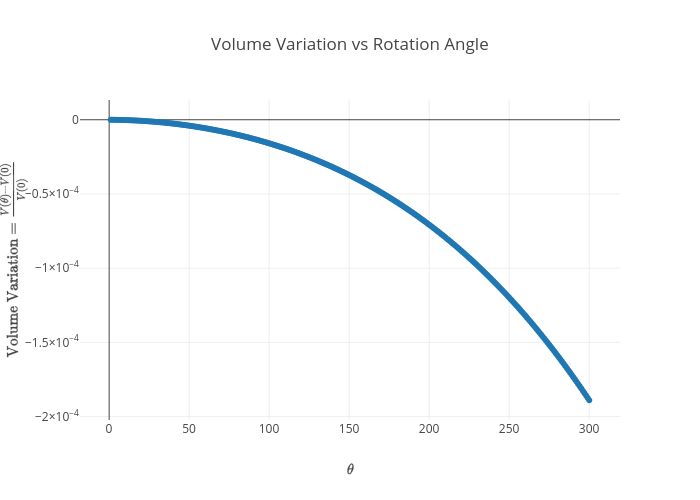Torsion Bar Benchmarks
| CSM toolbox documentation is available here. |
1. Introduction
We simulate the torsion of a beam generated by a circular motion at one extremities and fixed to the other side. The material is considered NeoHookean compressible.
3. Outputs
We compute the followig fields:
-
the process id (domain partitioning)
-
the displacement of the beam,
-
the Von-Mises criterium
We monitor also the output VolumeVariation.
4. Running the model
The configuration file is in /usr/local/share/feelpp/testcases/CSM/torsionbar/torsionbar.cfg.
The command line in feelpp-toolboxes docker or singularity reads
$ mpirun -np 4 /usr/local/bin/feelpp_toolbox_solid_3d --config-file torsionbar.cfg5. Results
5.1. 3D model
In the window below, you can manipulate the 3D model at the final time step.
| Click top left button on opengl window to change basic visualisation features |
5.2. Video
The video below shows the torsion of the beam at different steps.
5.3. Volume variation
| angle | volume_variation |
|---|---|
2.000000000e+01 |
-7.1205327110135420e-07 |
4.000000000e+01 |
-2.6027517259663583e-06 |
6.000000000e+01 |
-5.7130950210648768e-06 |
8.000000000e+01 |
-1.0111760640008077e-05 |
1.000000000e+02 |
-1.5894732445964629e-05 |
1.200000000e+02 |
-2.3184761044170456e-05 |
1.400000000e+02 |
-3.2130698649801578e-05 |
1.600000000e+02 |
-4.2906700095102244e-05 |
1.800000000e+02 |
-5.5711308518979796e-05 |
2.000000000e+02 |
-7.0766434915015033e-05 |
2.200000000e+02 |
-8.8316245737729603e-05 |
2.400000000e+02 |
-1.0862597054686069e-04 |
2.600000000e+02 |
-1.3198064153030495e-04 |
2.800000000e+02 |
-1.5868377398575725e-04 |
3.000000000e+02 |
-1.8905600553154056e-04 |
5.4. Expected performance
The results have been obtained in 868 second by using 24 cores on one node of the Atlas cluster (Intel Xeon E5-2680 v3 2.50GHz).
 .pdf
.pdf
